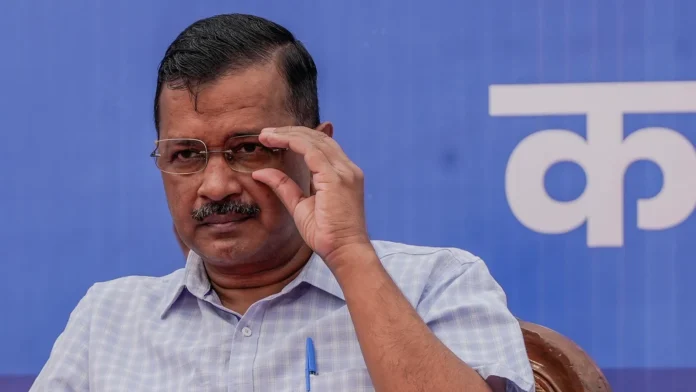Amit Shah, the Union Home Minister of India, recently made headlines with his remarks on the Delhi Liquorgate case, suggesting that Chief Minister Arvind Kejriwal’s association with the controversy would not benefit the Aam Aadmi Party (AAP) in the upcoming elections. The Liquorgate case refers to allegations of corruption and irregularities in the sale of liquor during the COVID-19 lockdown in Delhi, implicating several individuals associated with the AAP government. Shah’s comments have reignited political debates and raised questions about the potential impact of the controversy on the electoral landscape of Delhi.
In his statement, Amit Shah coined the phrase “Badi Bottle Dikhai Padegi” (the big bottle will be revealed), alluding to the purported revelations that would surface in the Liquorgate case. Shah’s remarks underscored the Bharatiya Janata Party’s (BJP) strategy to capitalize on the controversy and tarnish the image of the AAP government ahead of the Delhi Assembly elections. By highlighting Kejriwal’s alleged involvement in the scandal, Shah sought to portray the AAP as corrupt and untrustworthy, hoping to sway public opinion against the ruling party.
The Liquorgate case first came to light in 2020 when allegations of corruption and irregularities surfaced regarding the sale of liquor during the COVID-19 lockdown in Delhi. The controversy revolved around accusations of favoritism and illegal profiteering, with reports suggesting collusion between government officials, liquor vendors, and political figures associated with the AAP. The scandal sparked outrage among citizens and opposition parties, prompting calls for a thorough investigation into the matter.
Amit Shah’s comments on the Liquorgate case reflect the BJP’s concerted efforts to capitalize on issues of corruption and maladministration to undermine the AAP government’s credibility. By framing Kejriwal’s association with the controversy as a liability for the AAP, Shah sought to exploit public discontent and sow doubts about the ruling party’s integrity and competence. The BJP’s strategy aligns with its broader agenda to challenge the AAP’s dominance in Delhi and position itself as a viable alternative to the incumbent government.
However, the efficacy of Shah’s remarks remains to be seen, as the political fallout of the Liquorgate case is still unfolding. While the controversy has undoubtedly cast a shadow over the AAP government’s reputation, Kejriwal and his party have vehemently denied any wrongdoing, dismissing the allegations as politically motivated. The AAP has accused the BJP of orchestrating a smear campaign to tarnish its image and distract from pressing issues facing the city.
Moreover, the AAP’s track record of governance and its focus on delivering key welfare initiatives may help mitigate the impact of the Liquorgate controversy on its electoral prospects. Kejriwal’s popularity as a grassroots leader and his government’s achievements in areas such as education, healthcare, and public services have earned him significant support among Delhi’s electorate. The AAP’s ability to effectively communicate its message and mobilize its voter base could prove crucial in countering the BJP’s narrative and securing victory in the upcoming elections.
Additionally, the BJP’s own challenges, including internal divisions and public dissatisfaction with its performance at the national level, may limit the party’s ability to capitalize on the Liquorgate controversy effectively. While the BJP may seek to exploit issues of corruption and governance failures to gain electoral advantage, it faces its own credibility challenges and scrutiny from voters. The electorate’s perception of the BJP’s sincerity and credibility will play a crucial role in determining the outcome of the elections.
As the political landscape in Delhi continues to evolve, the Liquorgate controversy remains a significant factor shaping the dynamics between the AAP and the BJP. While Shah’s comments signal the BJP’s intent to leverage the controversy to its advantage, the AAP’s response and its ability to rally support will be key determinants of the electoral outcome. With the stakes high and political tensions running deep, the battle for Delhi promises to be closely contested, with both parties vying for supremacy in the national capital.

